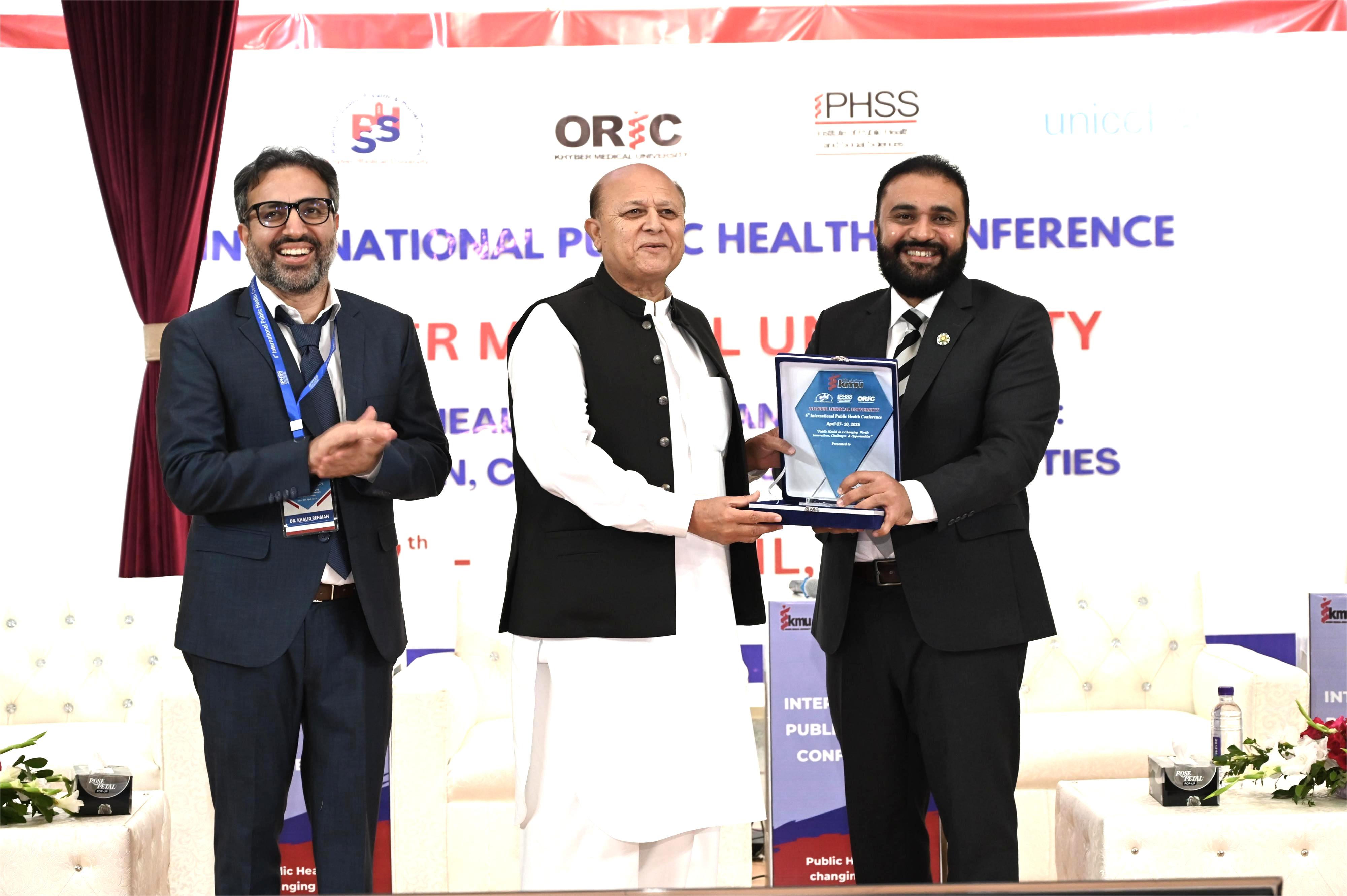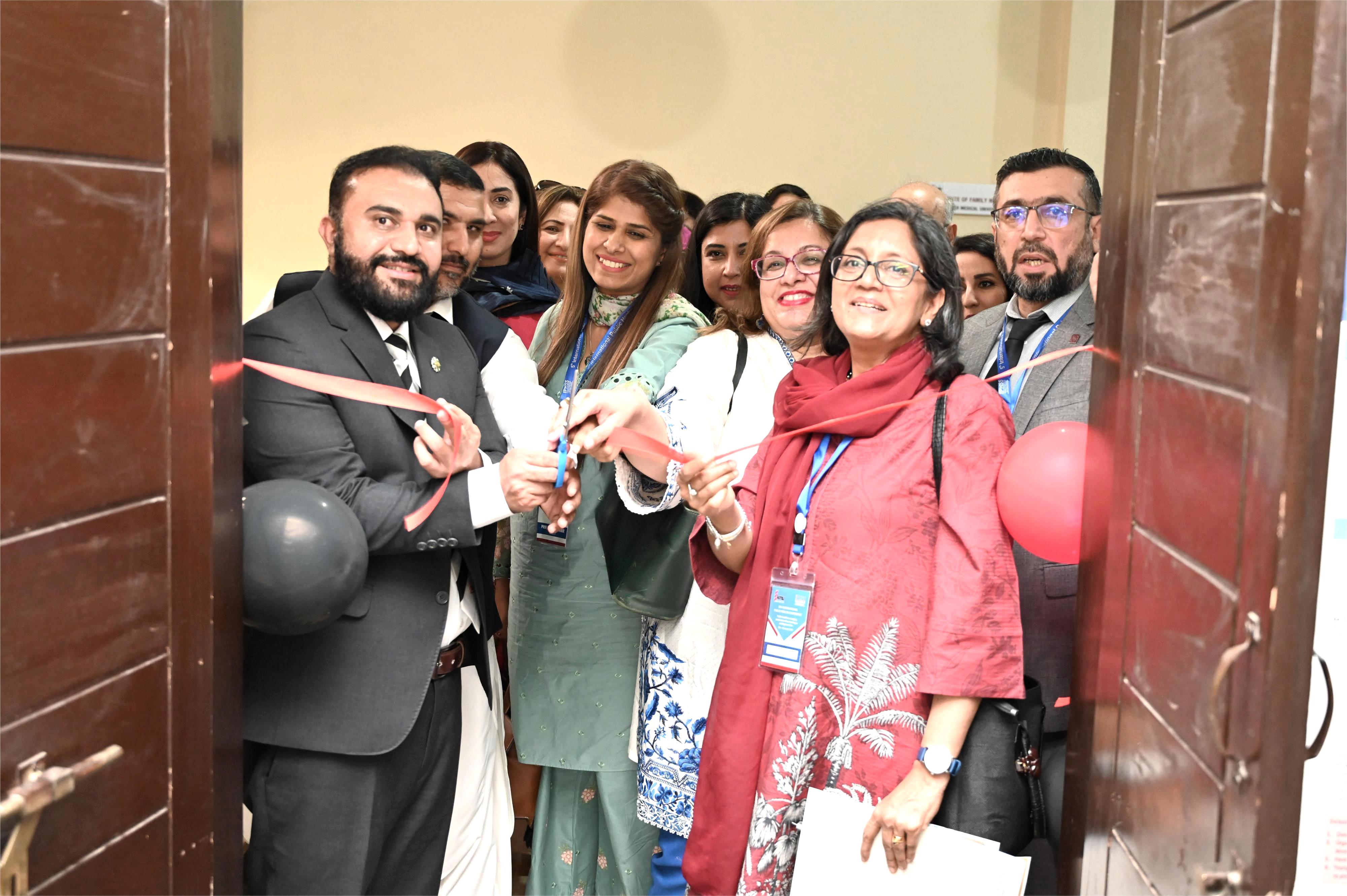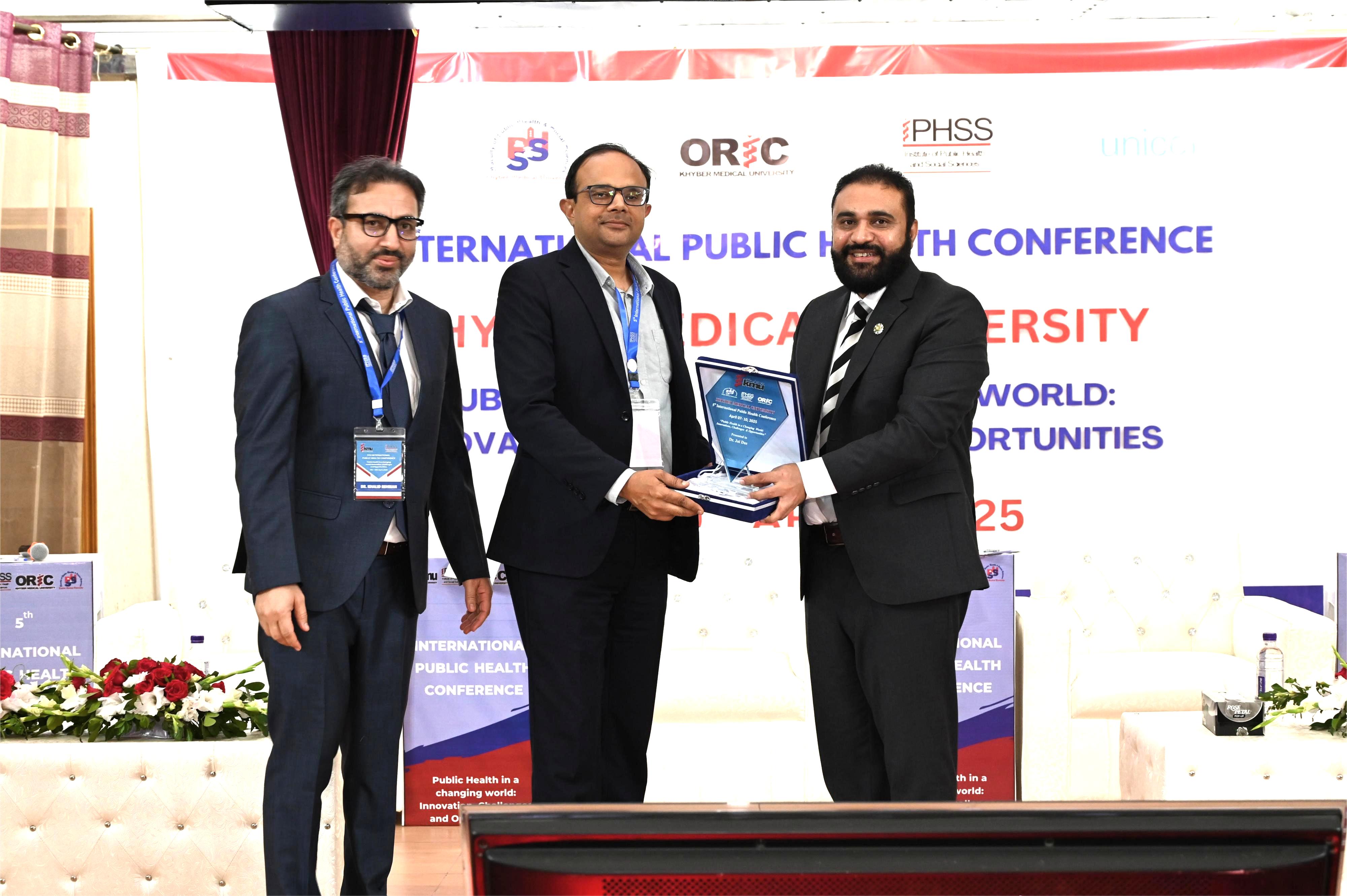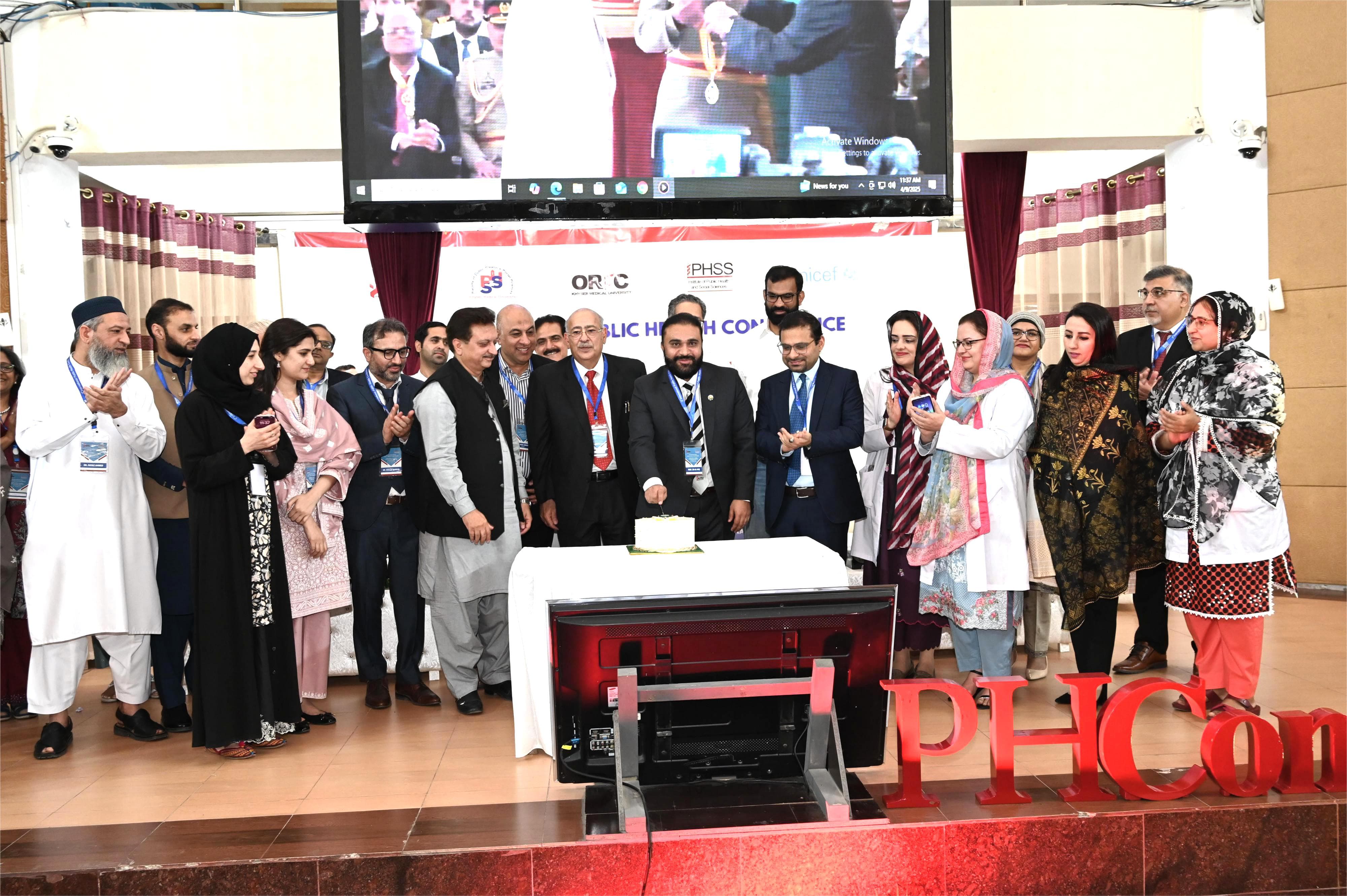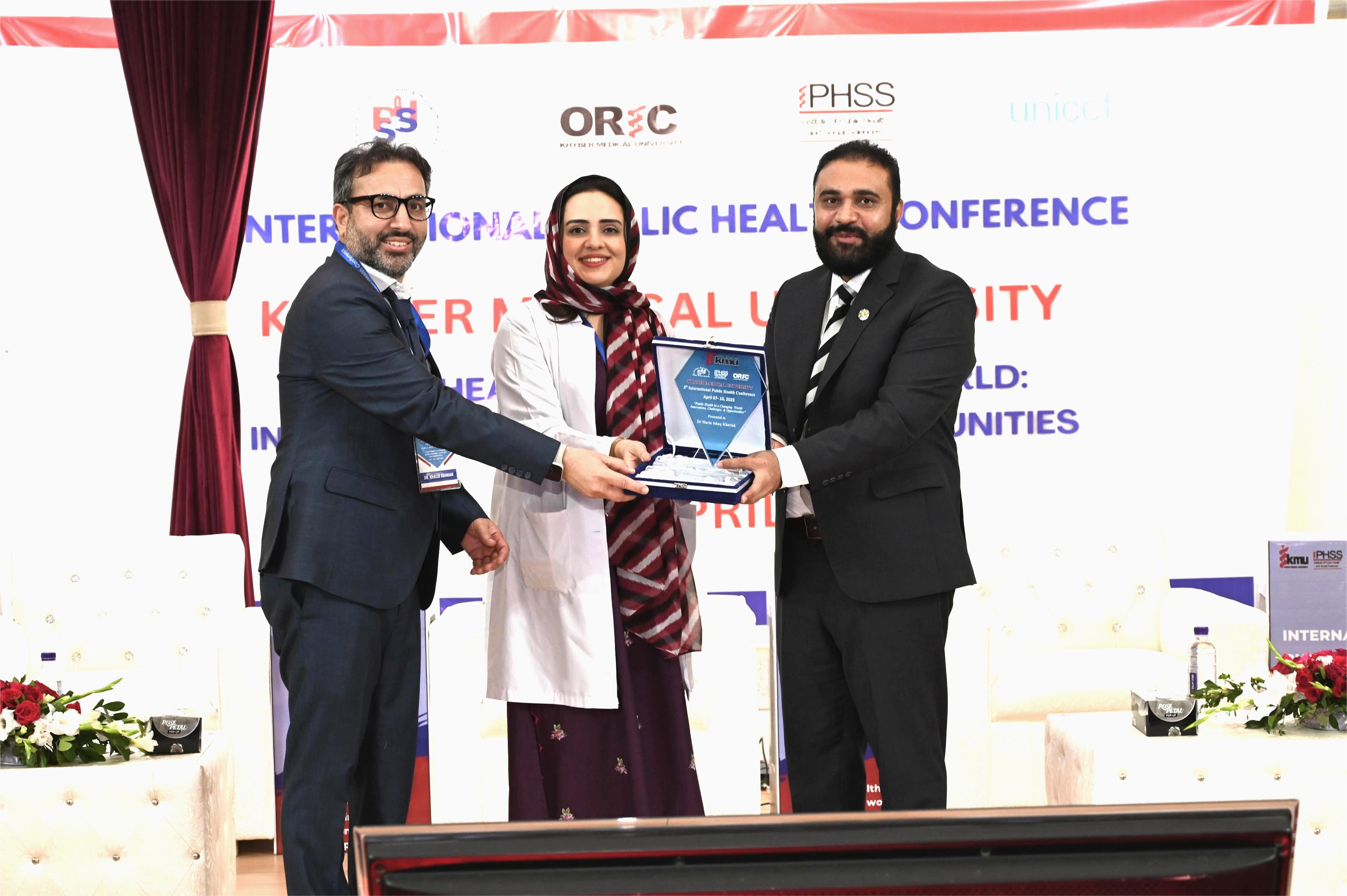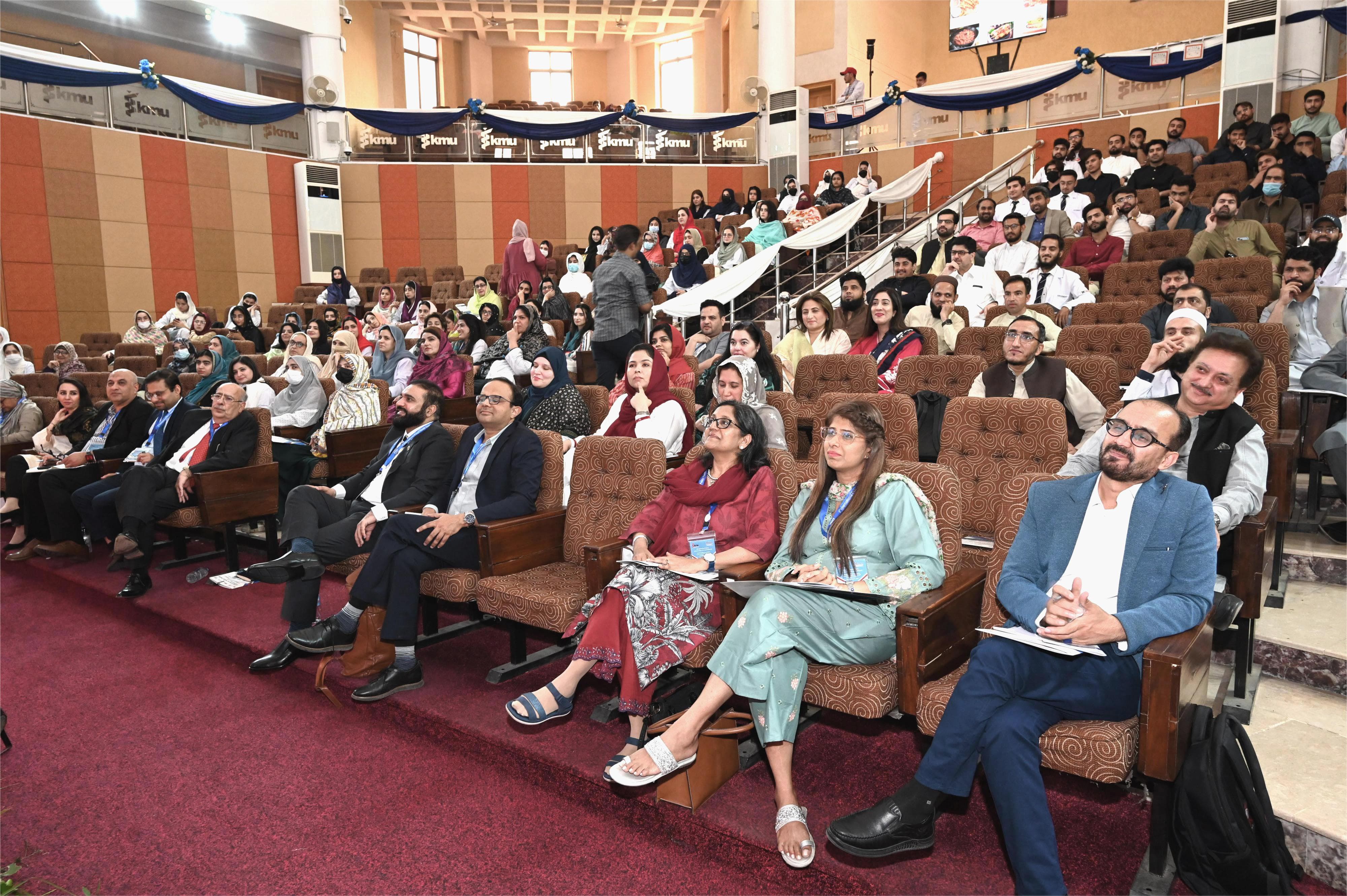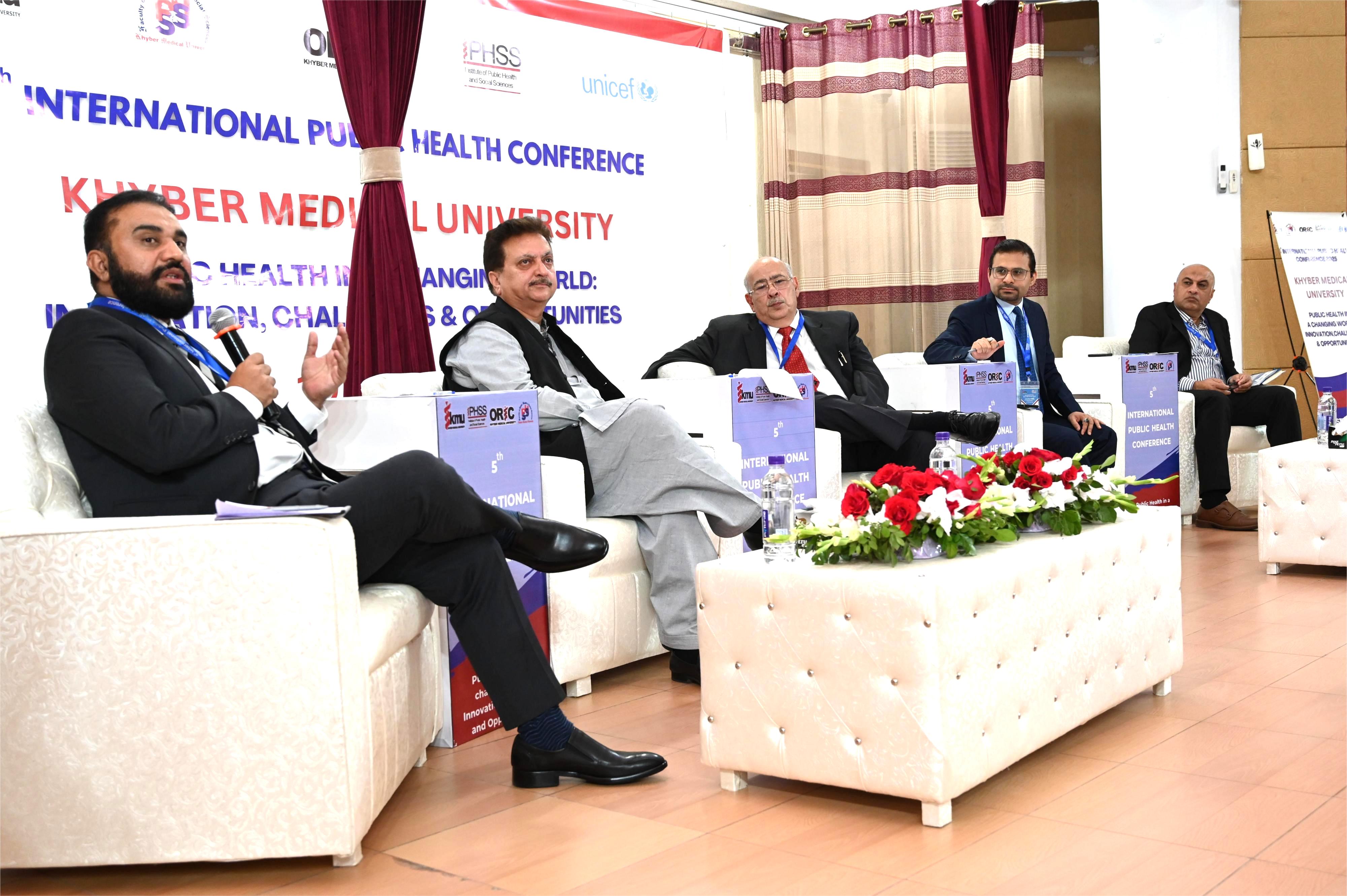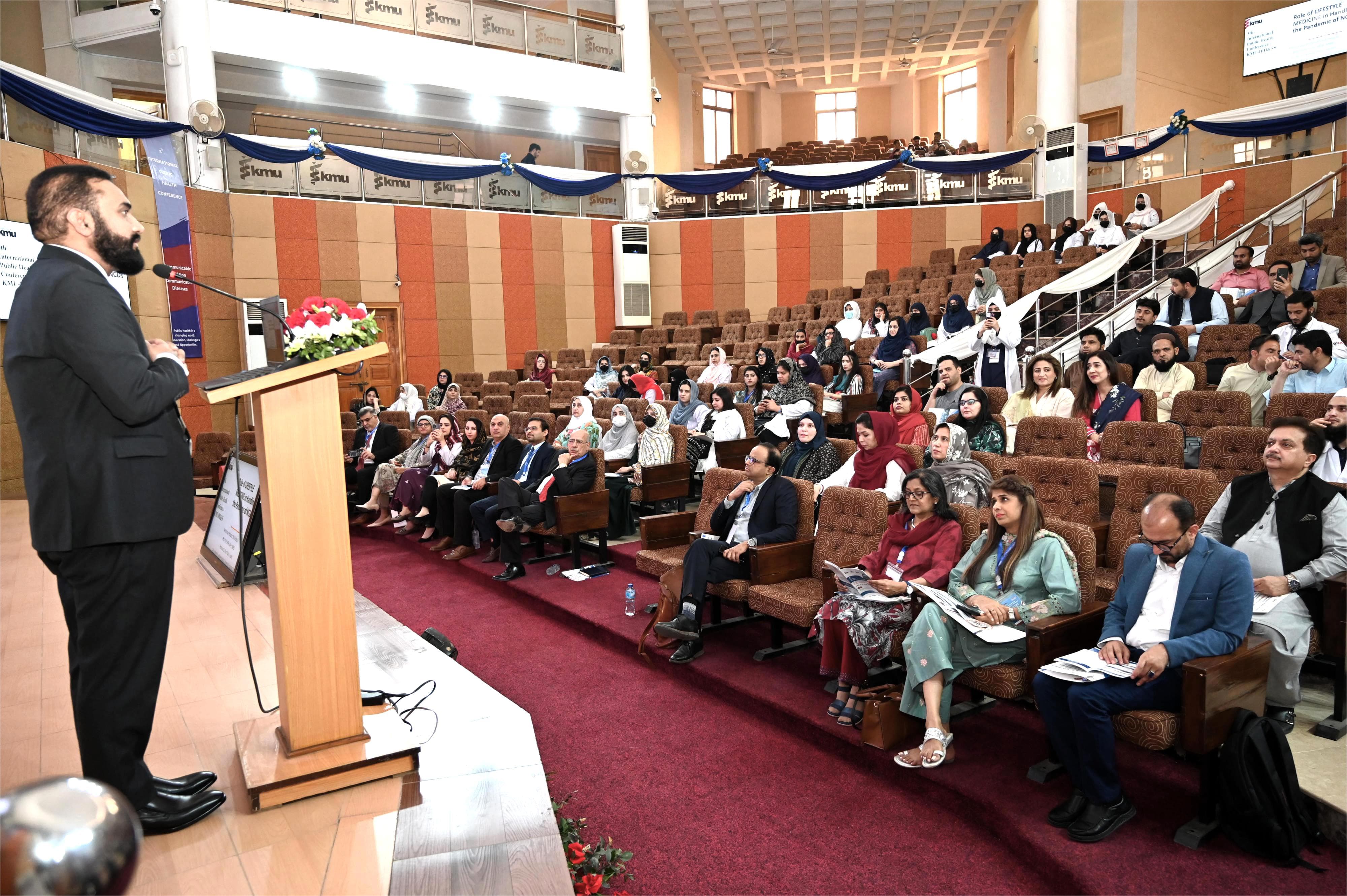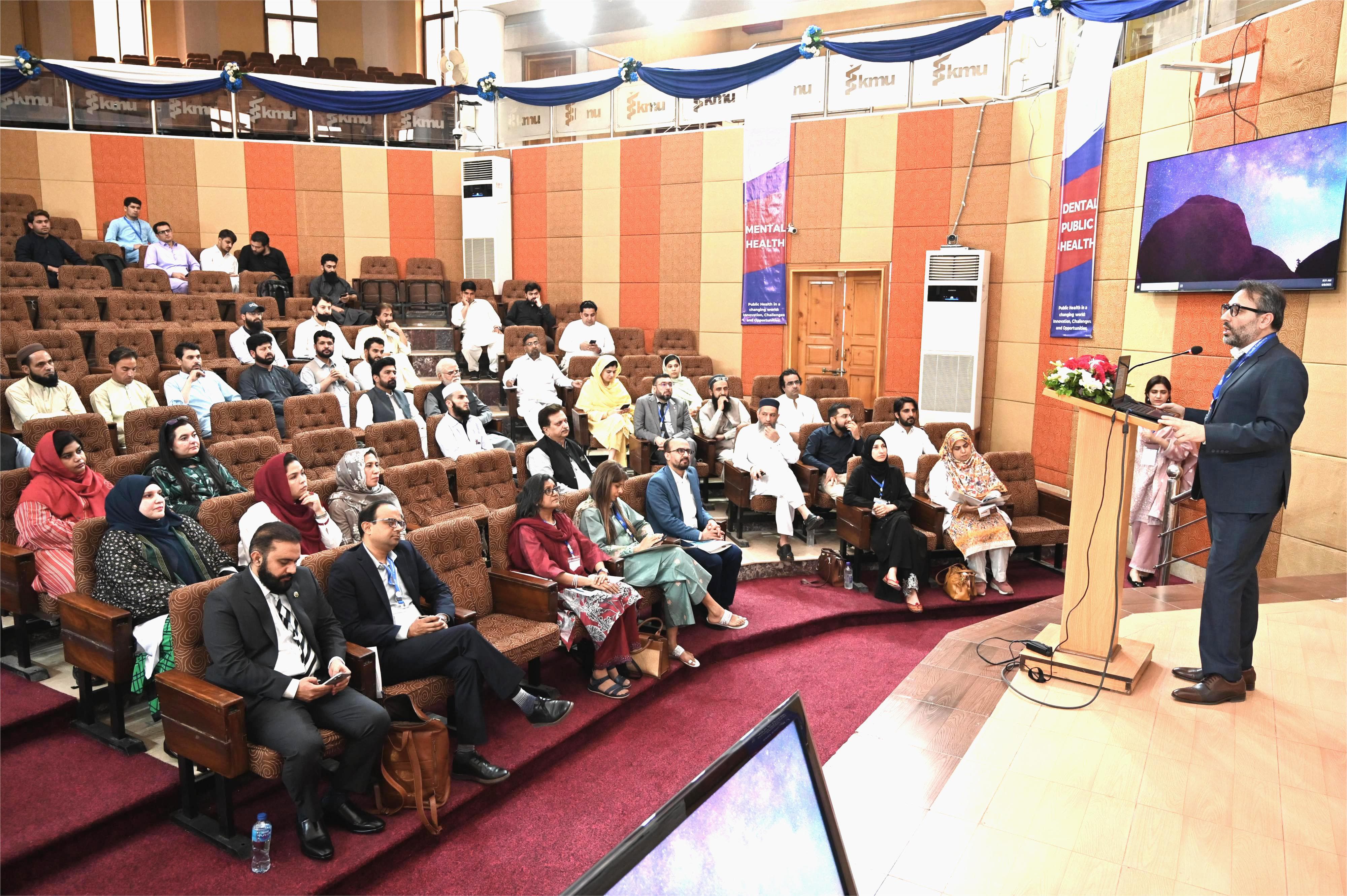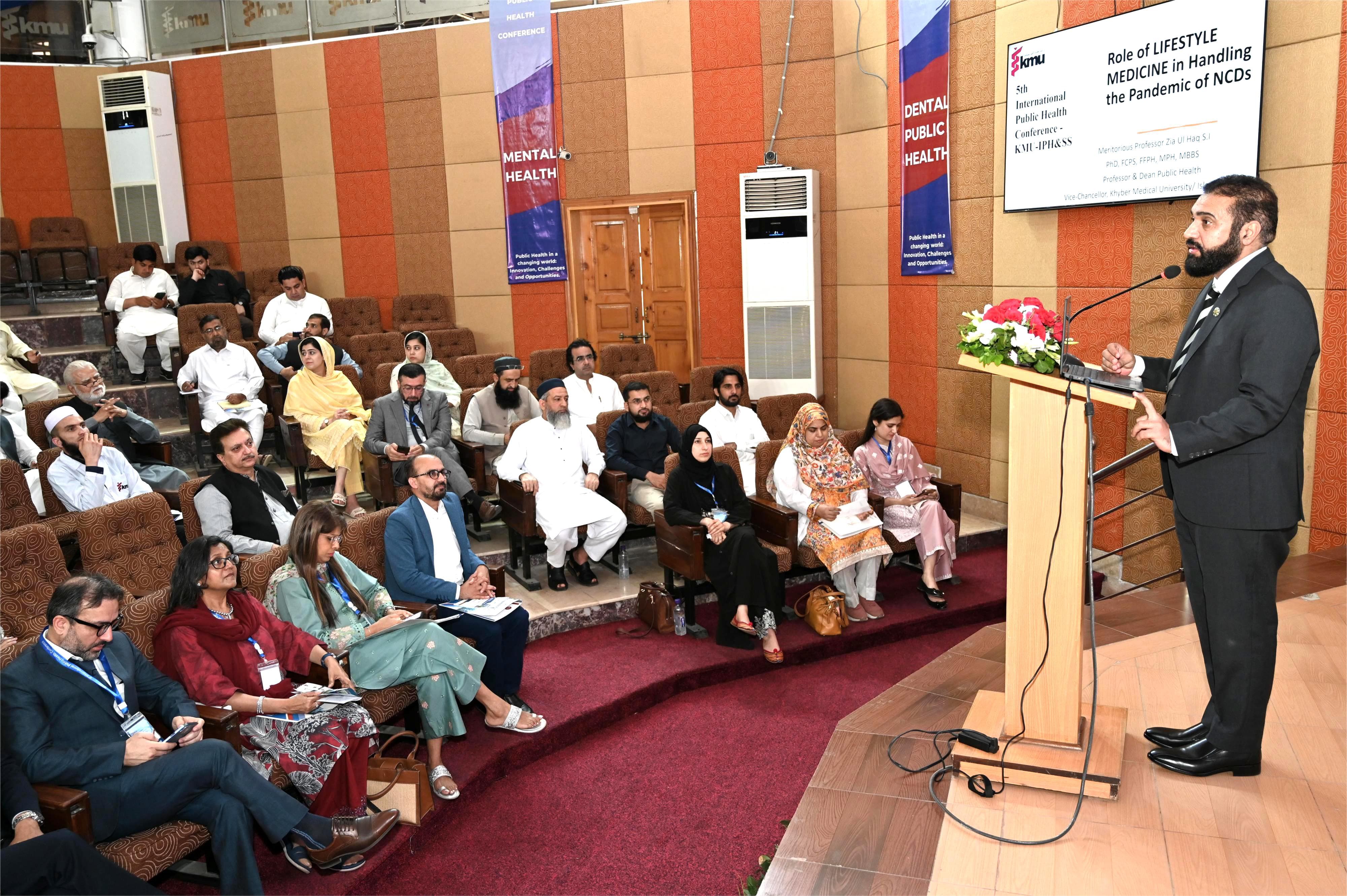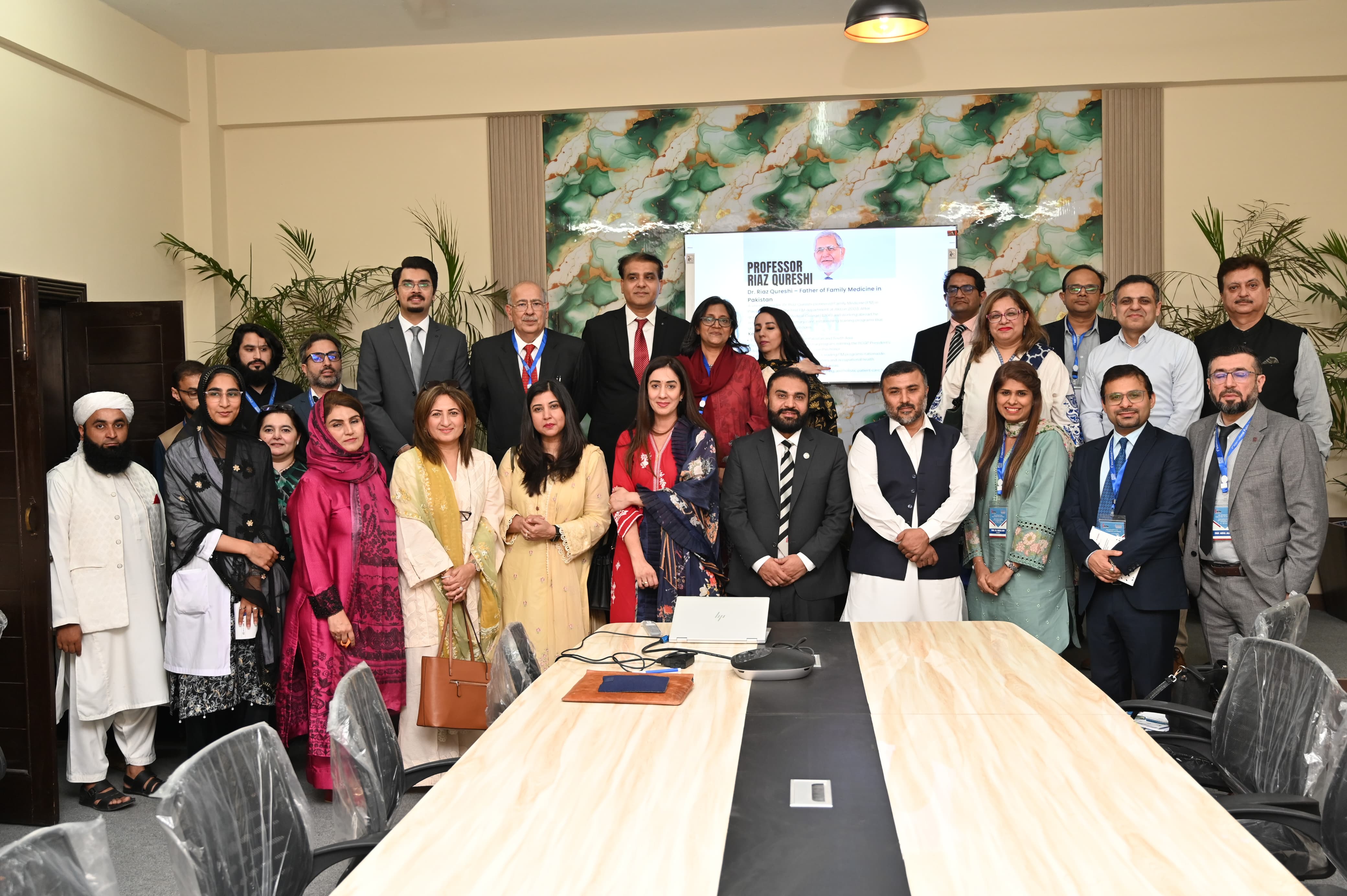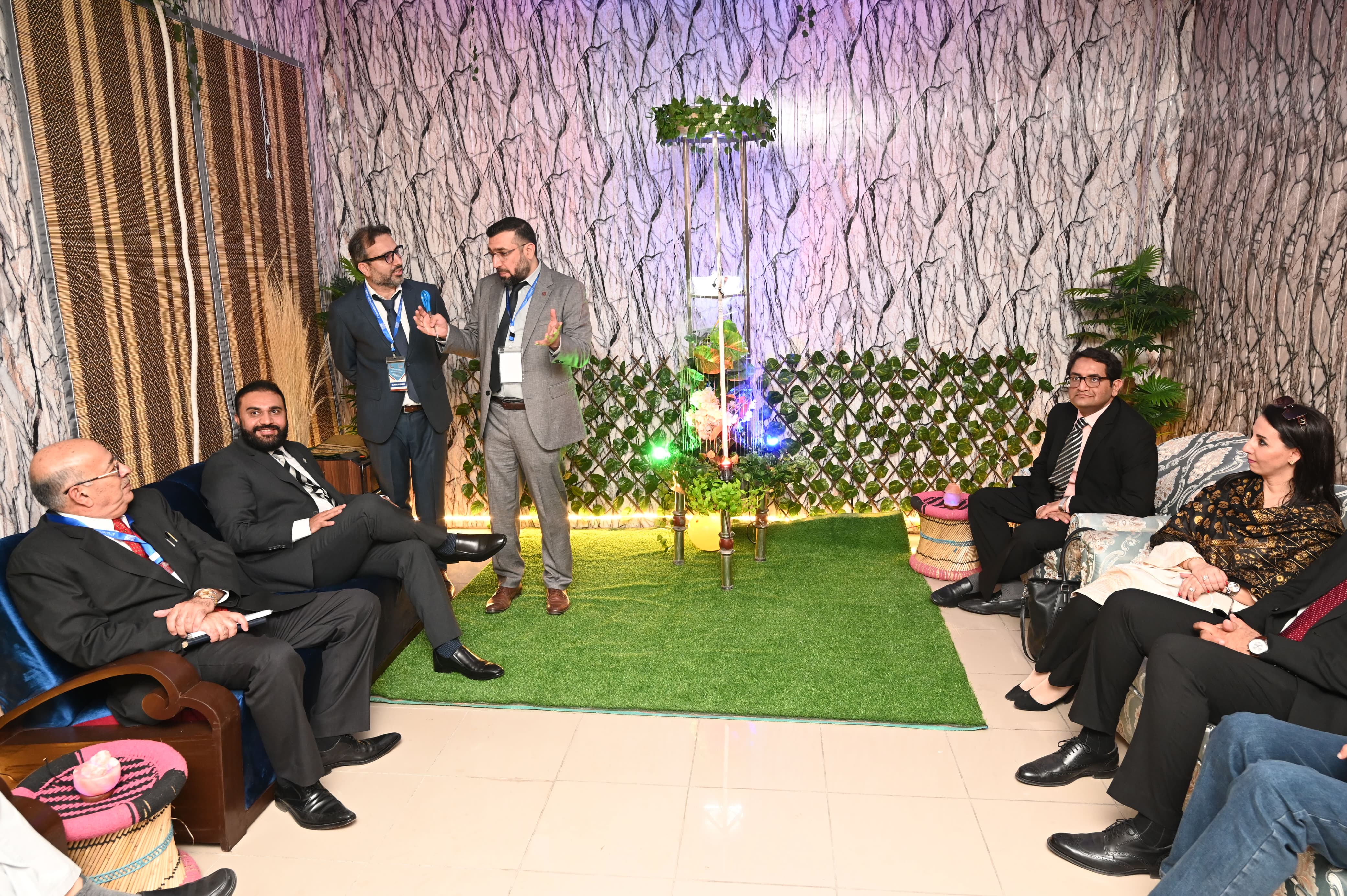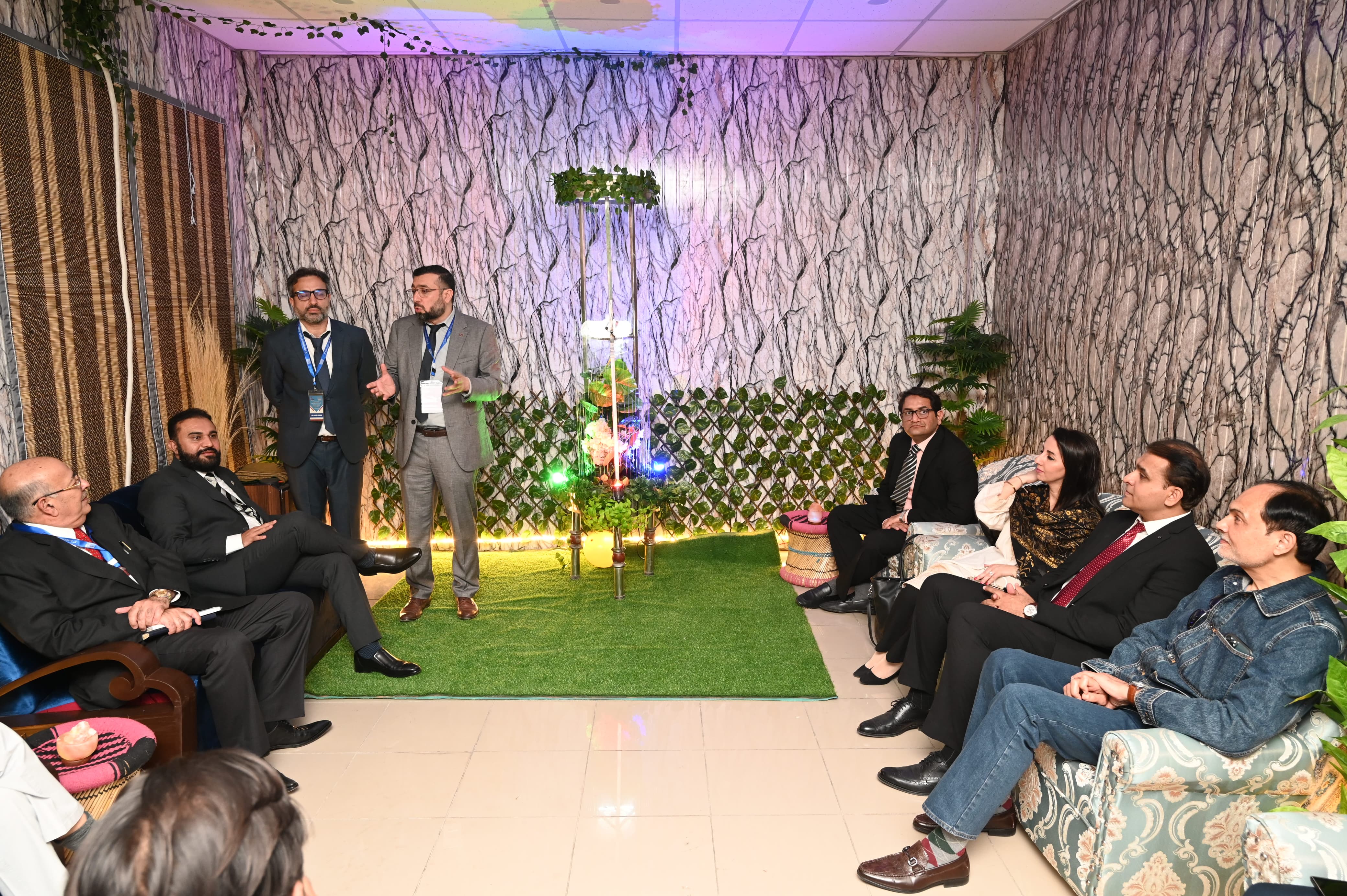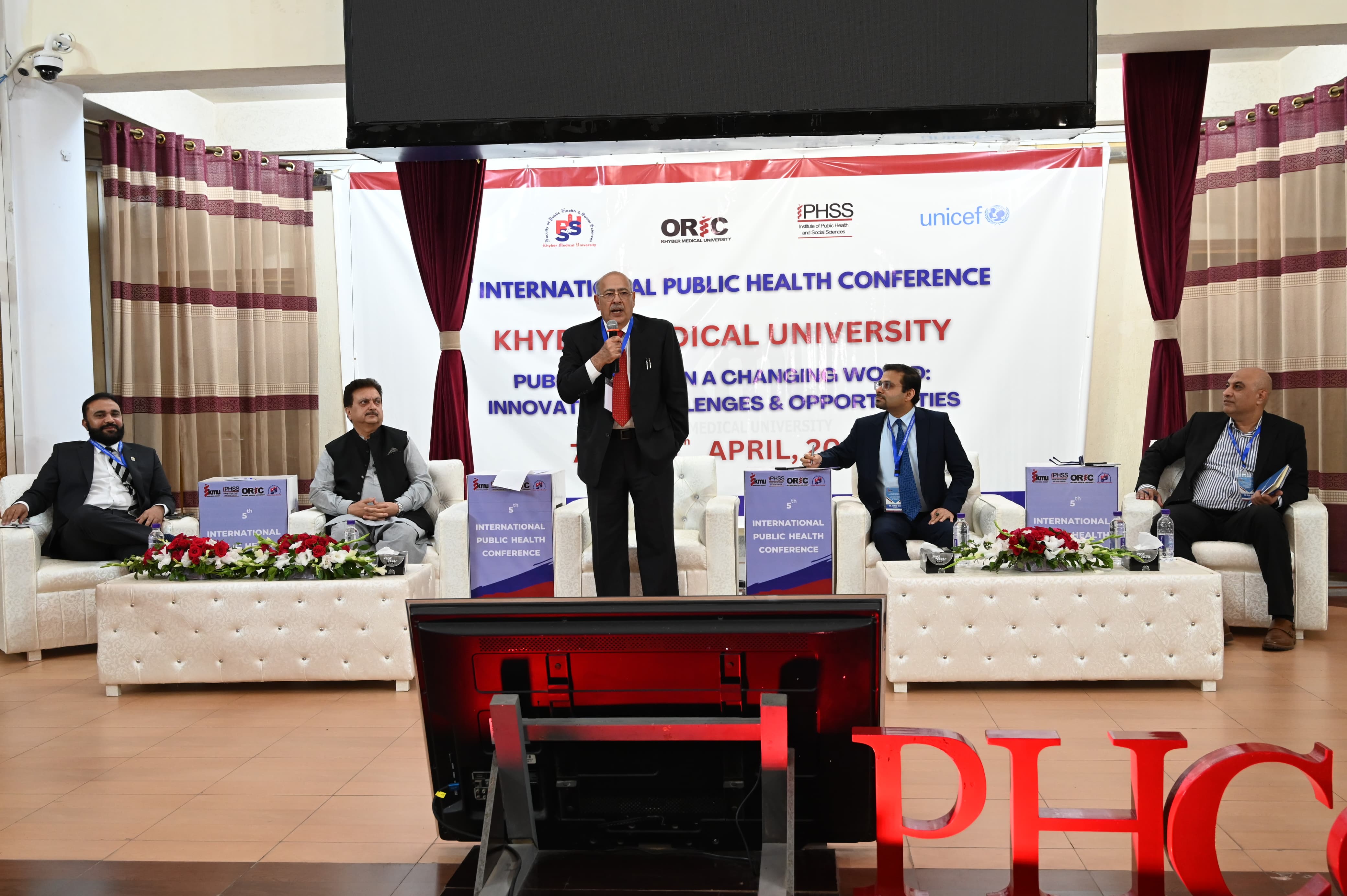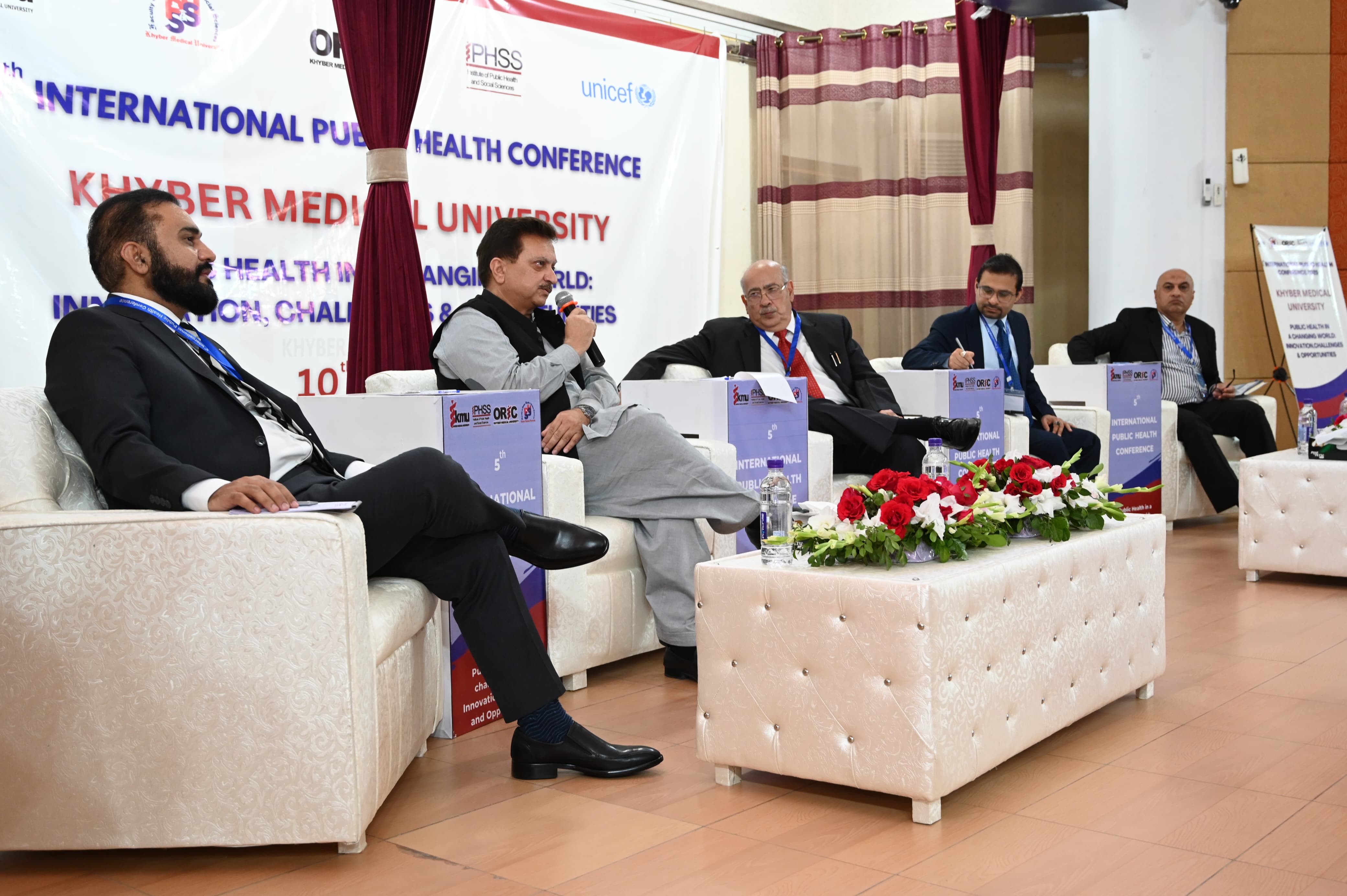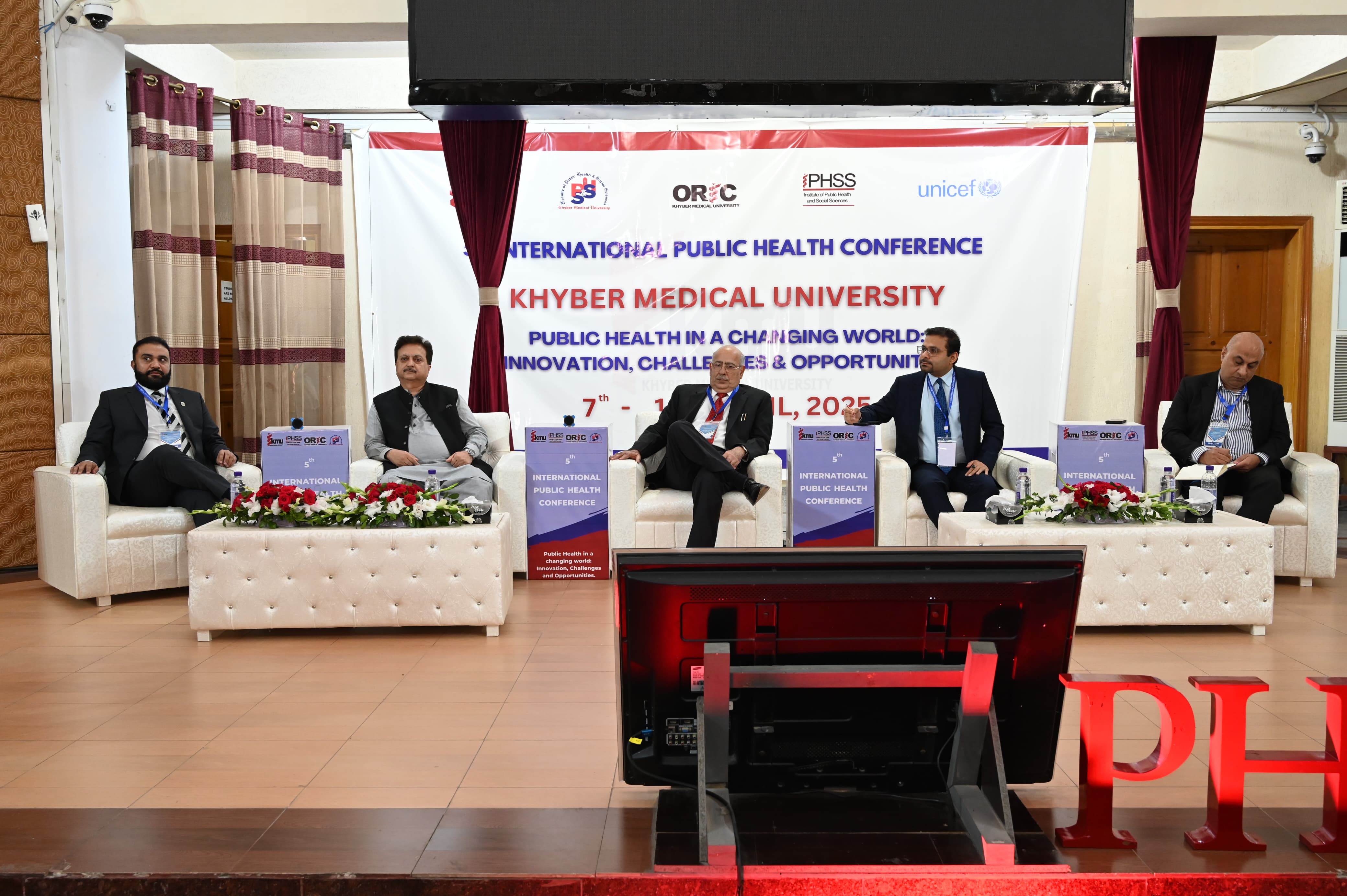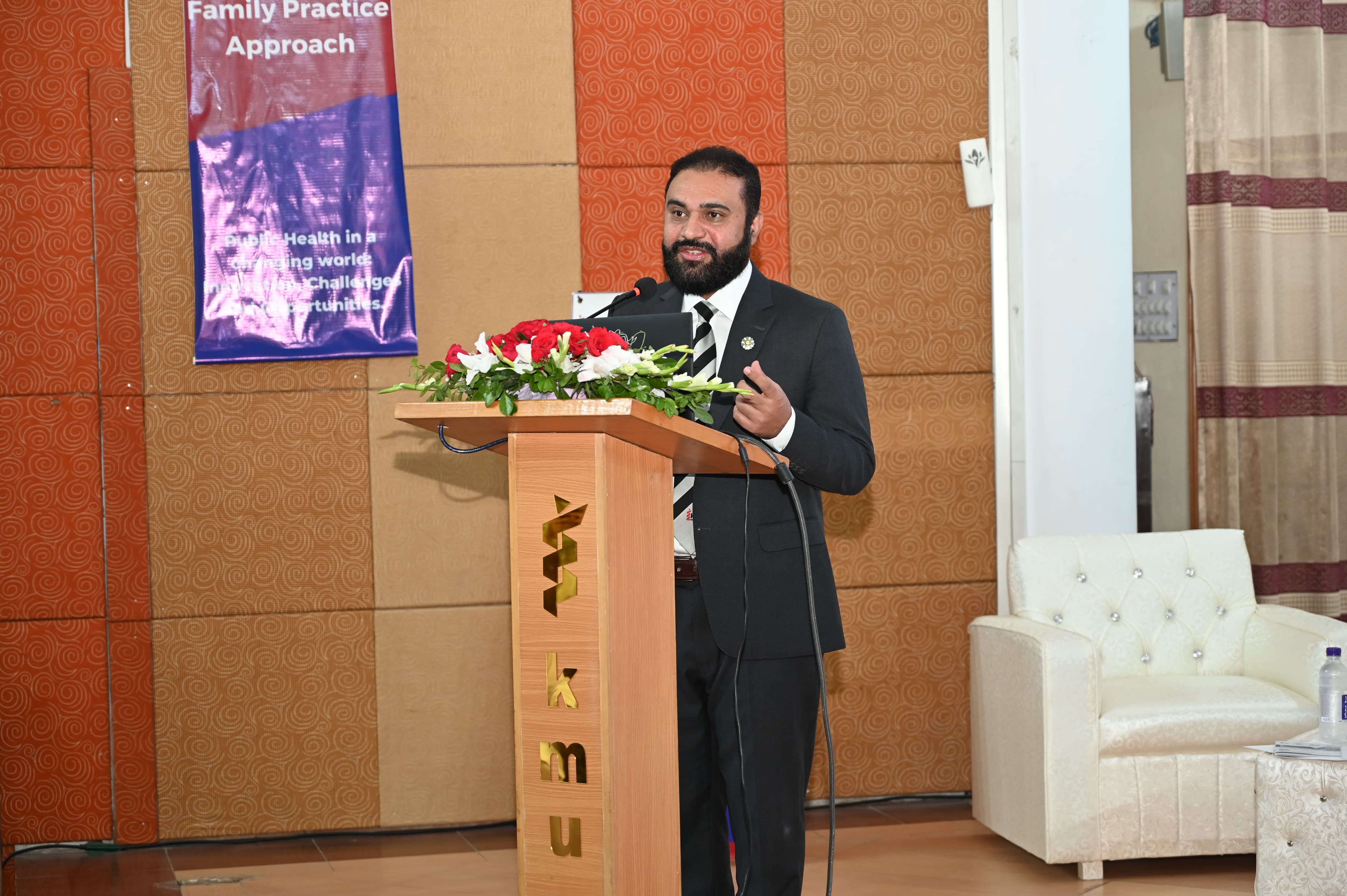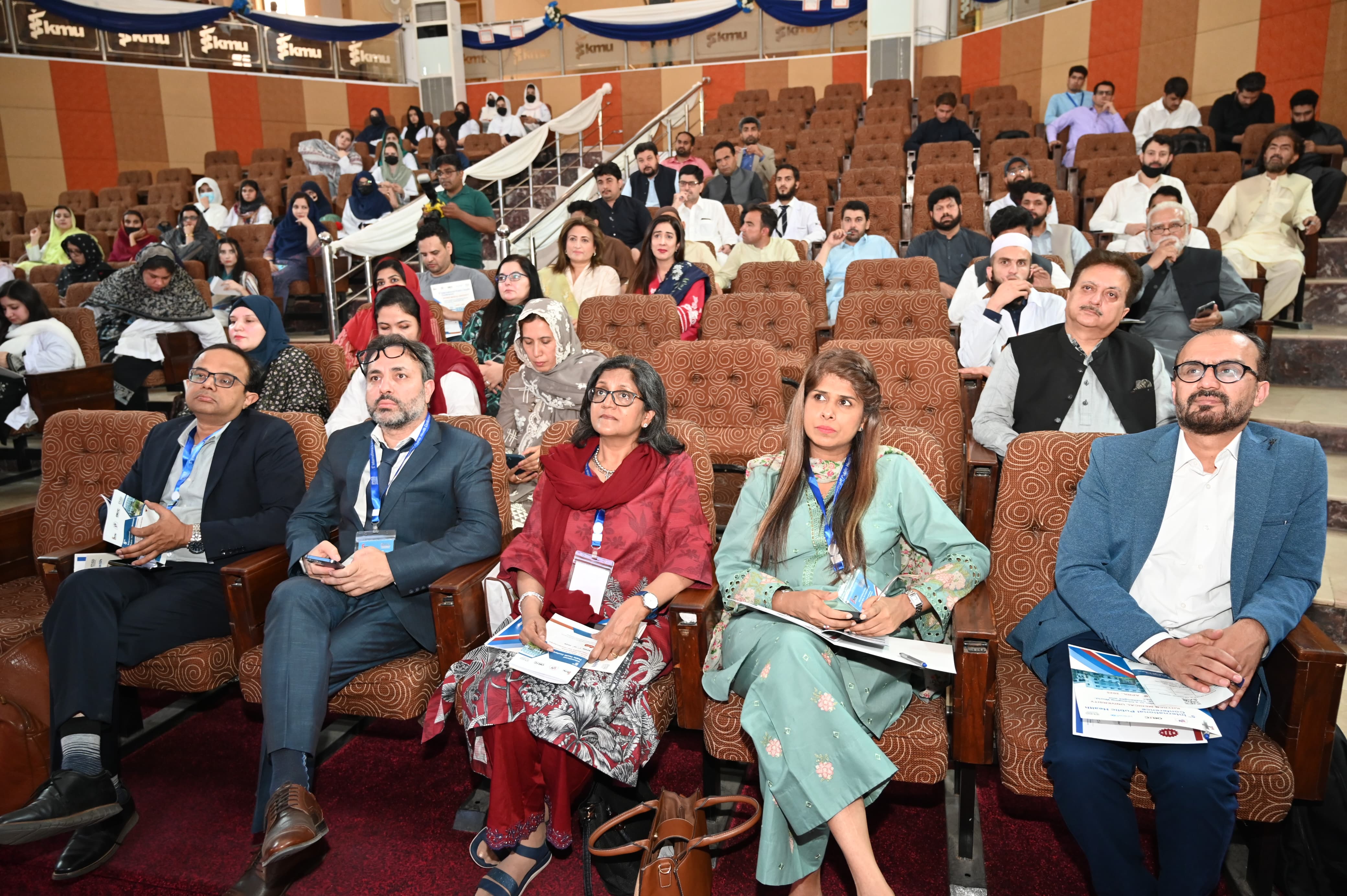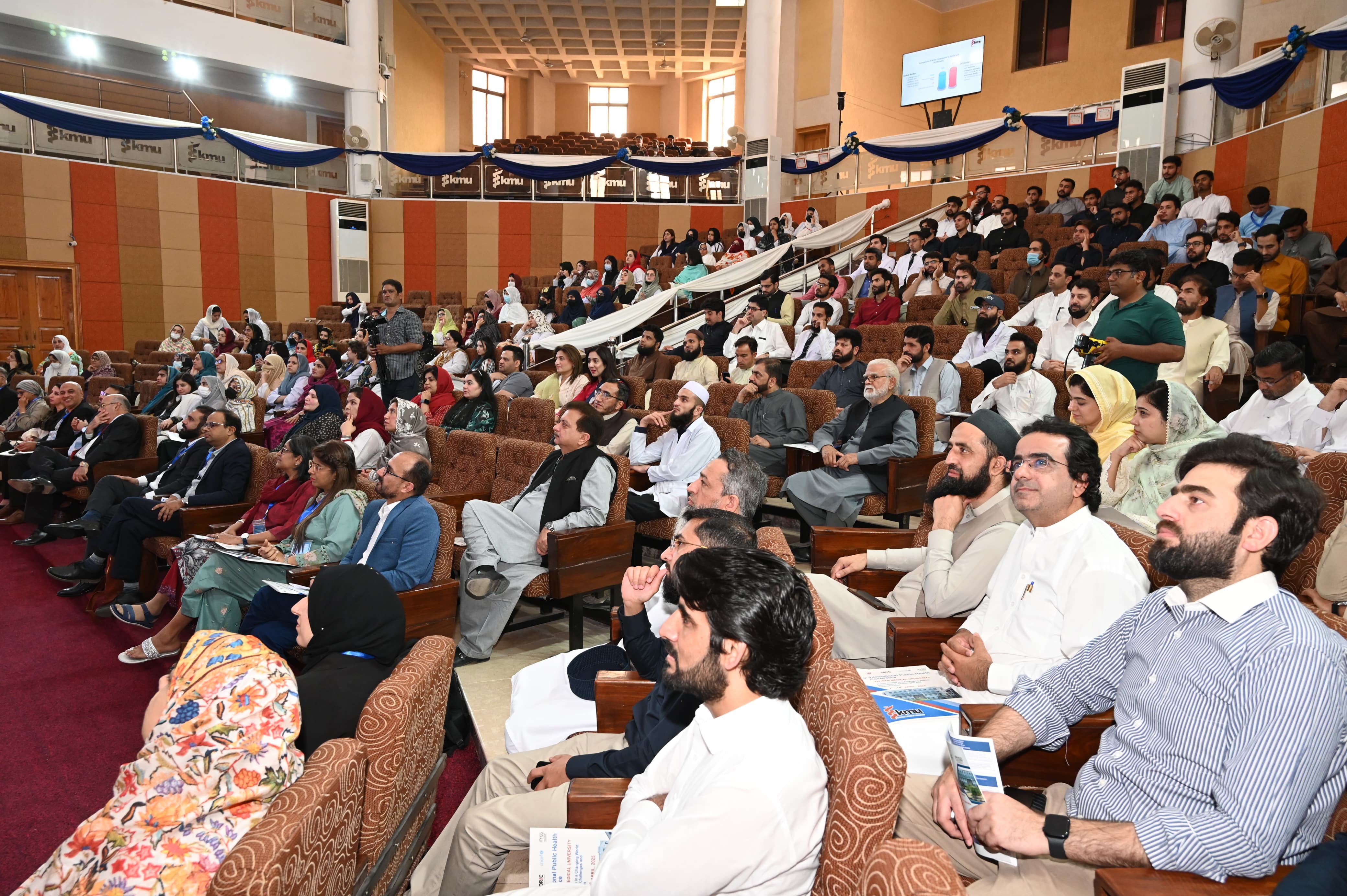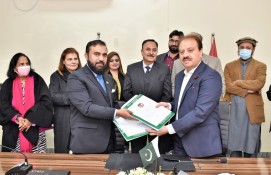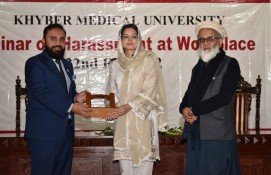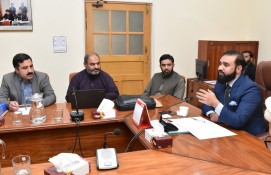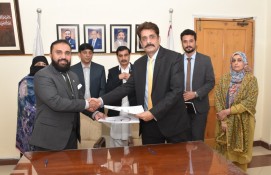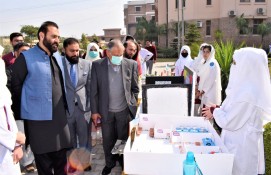KMU Hosts 5th International Public Health Conference: Day 1 Focuses on NCDs and Climate Change
-
-
Event Date:
Wednesday, 09 April 2025
-
Published on:
Thursday, 10 April 2025
Peshawar, Pakistan — Khyber Medical University (KMU) proudly inaugurated the 5th International Public Health Conference on April 9, 2025. The event brought together leading public health experts, clinicians, researchers, and policymakers from across Pakistan and abroad to deliberate on critical health challenges facing the region and the world. Day 1 of the conference centered on two pivotal themes: Non-Communicable Diseases (NCDs) and the Climate Change & Health Nexus, emphasizing the need for integrated and interdisciplinary strategies in public health.
The conference opened with a dynamic plenary session on Non-Communicable Diseases. Professor Dr. Zia ul Haq, Vice Chancellor of KMU, delivered a compelling keynote on "The Role of Lifestyle Medicine in Handling the Pandemic of NCDs." He stressed that the global burden of NCDs can no longer be managed without prioritizing prevention through behavior change, community-level interventions, and a shift in medical education toward lifestyle medicine. Following this, Professor Abdul Jalil Khan, Director of Family Medicine at KMU and a physician with extensive experience in the United Kingdom, presented “Bridging the Gaps: Insights from the UK for Tackling NCDs Globally.” He urged adaptation of scalable primary healthcare models that are sensitive to the needs of low- and middle-income countries. Dr. Munaira Abbasi, a triple board-certified U.S.-based physician, spoke on “Combating NCDs: The Role of Lifestyle Medicine in Public Health.” She emphasized the urgent need for clinicians to adopt a preventive and holistic approach, highlighting how clinical care must intersect with public health initiatives to combat rising NCD trends.
A thought-provoking panel discussion followed, featuring Dr. Bilal Imtiaz from UNICEF Headquarters, Dr. Fawad Khan of WHO Sudan, Dr. Muhammad Khalil Akhtar from KP's Health Sector Reforms Unit, and Professor Dr. Zia ul Haq. The panel collectively identified the urgent need to scale up NCD prevention efforts through multisectoral approaches. Dr. Imtiaz emphasized adolescent health and early intervention as essential to halting the generational cycle of NCDs. Dr. Khan discussed the overlooked burden of NCDs in humanitarian crises and fragile states, where chronic disease care often collapses. Dr. Khalil Akhtar highlighted KP’s efforts in developing integrated care pathways and strengthening provincial surveillance systems, while Dr. Zia ul Haq reiterated the importance of political will and policy coherence across sectors. Findings shared during this session noted that over 60% of Pakistan’s disease burden stems from NCDs and that interventions such as digital health tools, lifestyle education, and early diagnosis remain underutilized.
The afternoon session shifted focus to the Climate Change and Health Nexus, with keynote speaker Dr. Jai Das, Associate Professor at Aga Khan University, delivering a compelling presentation titled “The Climate-Health Nexus: Impact, Shaping Adaptation and Resilience.” Dr. Das underscored the compounding impact of climate change on vulnerable populations, including women, children, and the urban poor. He called for integrated national policies that address environmental sustainability and public health in tandem, warning that failure to act now would undo decades of public health progress.
Dr. Maria Ishaq Khattak, Assistant Professor and Head of the Department of Dental Public Health at KMU, presented her research on “Understanding Climate Change and Health Vulnerability: Socio-Economic Incentives for Climate Resilience Among Informal Sector Workers in Khyber Pakhtunkhwa.” Her findings shed light on the increased susceptibility of informal workers to climate-induced health risks such as heat stress, waterborne illnesses, and respiratory infections. She emphasized the role of social protection, health insurance, and targeted adaptation schemes to reduce climate-related health inequities in low-income communities. The panel discussion that followed emphasized the importance of early warning systems, climate-resilient infrastructure, and cross-departmental coordination among health, environment, and disaster management sectors.
Parallel plenary sessions added diverse perspectives to the day. The session on “Strengthening Primary Health Care Through the Family Practice Approach” focused on revitalizing Pakistan’s primary healthcare system through the integration of family medicine. Experts emphasized that trained family physicians are essential for ensuring accessible, equitable, and continuous care. Discussions included strategies for deploying physicians at the community level, integrating digital health technologies, and building sustainable support systems to achieve Universal Health Coverage (UHC).
The “Dental Public Health” session shed light on the widespread burden of oral diseases and the urgent need for integrated, preventive oral health programs. Speakers stressed that oral health is often overlooked despite its strong associations with systemic diseases like diabetes and cardiovascular conditions. The session advocated for school-based oral health programs, community interventions, and the establishment of national oral health surveillance systems.
Another important session on “Integrated Nutrition Programs and Their Impact in Khyber Pakhtunkhwa” addressed the longstanding issue of malnutrition in the region. Presenters shared data and success stories from nutrition-sensitive and nutrition-specific interventions, particularly those targeting women, infants, and children. Key highlights included the role of multisectoral coordination between health, agriculture, and education departments, improvements in maternal and child nutrition indicators in selected districts, and the use of behavior change communication to promote healthier dietary practices. Speakers emphasized the need to address urban-rural disparities in program access and called for sustained investment and policy continuity to ensure long-term nutrition gains.
Day 1 of the 5th International Public Health Conference concluded with a collective call for equity, intersectoral collaboration, and innovation in addressing public health challenges. With a strong emphasis on research, education, and policy translation, KMU continues to lead the way in advancing public health systems in Pakistan and fostering global partnerships for health resilience.


